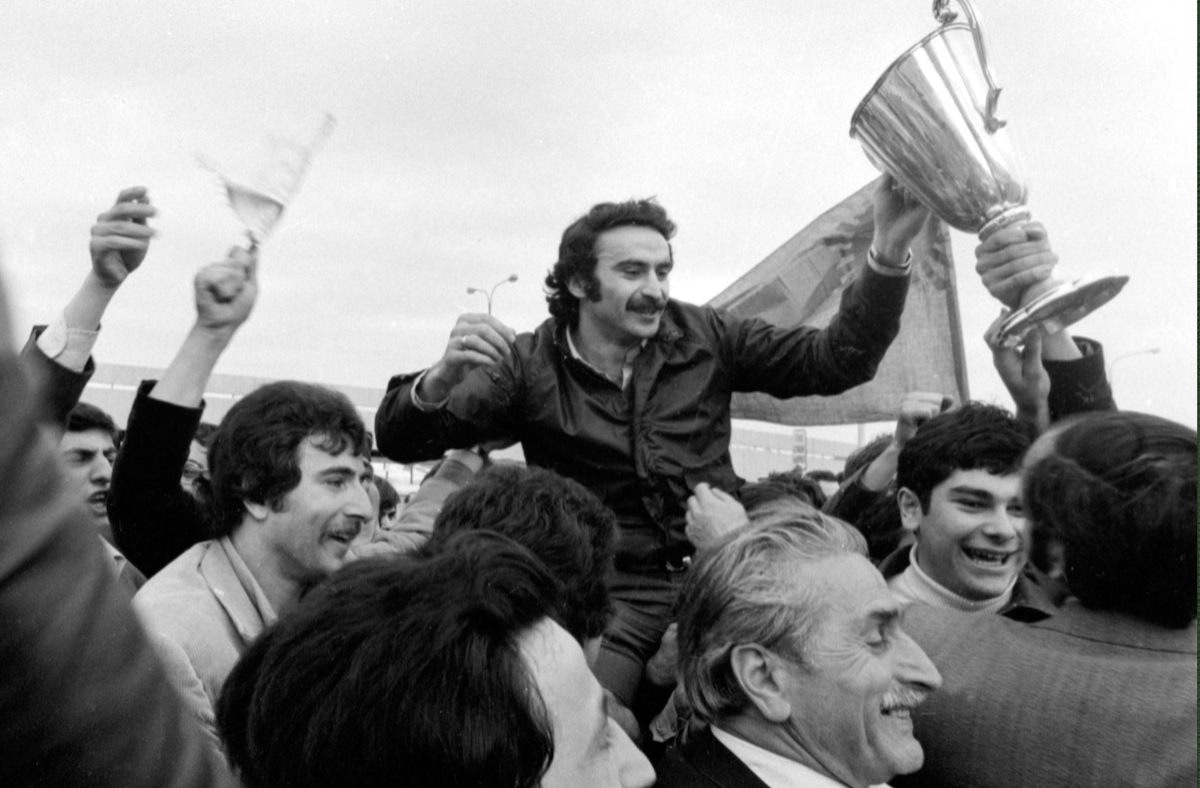I hope you like football, or at least you don’t hate it. Whether you want it or not, you’re sure to see some of it on TV. Football fans are luckier nowadays: all you need are the necessary channels, and you can have as much football as you wish on TV, computer and mobile phones. You’re bound to get messages about the happenings at White Hart Lane – someone scored and another player was given a yellow card.
Many might complain there’s too much football and that they’re fed up with it, but those who had craved the game but had been deprived of it will never whine about football being a loyal friend of television, accepting the fact that these two have become inseparable.
However, that wasn’t the case earlier, if you fell in love with the game in the country that, until the ‘great’ Soviet State was about to break up, had never broadcast any match unless one of its teams played – neither the Champions Cup, nor the Cup Winners’ Cup, nor the UEFA finals. In this case the information hunger and regret of missing the spectacle will certainly haunt you from your childhood to your retirement day: you are sorry to have missed those great matches, so you keep looking for them on YouTube, thinking what you might have felt watching them back in those days...
Archipelago USSR: the 30th anniversary of the breakup of Soviet Union
Ukraine: From USSR to Maidan, a corridor of memories
Belarus: Back in the USSR – again
Russia: the Soviet Union’s neverending disintegration
Moldova: ‘To be born in the USSR was to be born into a state of being’
In Soviet Georgia, escape came through football
What was the USSR in the 1970-1980s? How did it feel to live there? Officially, it was the country of victorious socialism, ripe for the move into a Communism that should have produced tangible fruits for everyone to enjoy.
But what is communism?
It’s free food for all, nothing else. In those days a food shortage was the main problem. It did depend on the region though. When you lived in the south, you could depend on generous nature: if things got tough, you could always have tomatoes, cucumbers and chilli peppers.
Leonid Brezhnev was the head of state in those years. He was said to be kind, but that might have been in comparison with the hysterical, agriculture-crazy Khrushchev and the infamous Stalin before him.
In the Tbilisi Dynamo heyday, Brezhnev’s Soviet Union had already invaded Afghanistan with the aim of establishing socialism. We clearly see today how successful the move was.
In the meanwhile, the Polish Solidarity voiced protest, but the Soviet Union still firmly believed in its own superiority and invincibility.
From the early days of the Soviet Empire, people with alternative opinions and ideas were spread between psychiatric wards and special labour camps. It was an accepted reality. All kinds of restrictions were effectively implemented, controlling every step ordinary people took. While visiting West European countries, they had to stroll in groups of three, because at least one of them would have admitted any wrongdoing in the KGB interrogation room.

On a personal level, people were sympathetic to each other until the relationships jeopardised their private well-being, which was based on the ‘great principles’ promoted by the ‘great country’.
Indeed, it was a horrible country! In my university there were many talented students keen to study. However, the main building housed the Second and the Third Departments: the Second was responsible for military conscription, while the Third invited volunteers to work for the State Security. Proclaimed to be open for volunteers, it operated differently: you could enrol in gymnastics or sports or literary clubs available at the university, but would still be summoned to visit the Third Department. And you didn’t need any particular skill or talent to join it.
Anyway, Brezhnev’s Soviet Union was milder in comparison to its predecessors, but still rigid, craving world domination through revolutions and extermination of any kind of liberal or alternative thinking. It was a miserable country with happy people who felt dejected because they knew deep down they were missing something valuable – freedom.
Football was a cult game in the Soviet Union, so home competitions always offered interesting …












